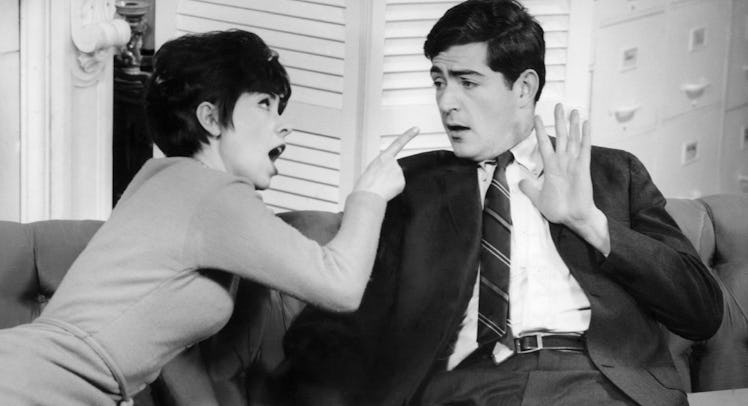How To Lose Your Job Without Losing Your Wife
It's about time, not money.

Wives tend to divorce husbands more often than the other way around, and last year a large Harvard study revealed one reason why—their breadwinners run out of bread. Unemployment was the most significant reason that women divorced men. But, paradoxically, it wasn’t because of the money. The decision to divorce after a husband lost his job, the researchers found, had far less to do with cash flow than the wife’s distaste for her idle husband. The findings imply that husbands can mitigate the toll that unemployment takes on their marriages by otherwise occupying themselves.
In other words, men, it’s not that you’re family is out of cash—it’s that you are out of work. “I was surprised that total household income wasn’t strongly associated with the risk of divorce and that women’s economic independence didn’t appear to increase their likelihood of divorcing,” coauthor on the study Alexandra Killewald of Harvard University told Fatherly. “It’s the work itself that seems to matter, not the financial consequences.”
To be fair, past research certainly indicates that financial problems can cause marital ones, and running out of money is doubtless a burden on even healthy marriages. But Killewald’s study, published in American Sociological Review, challenged the root cause of the link between unemployment and divorce by examining data from 1,684 couples that divorced or permanently separated between 1968 and 2013.
Killewald and colleagues first divided the data into two cohorts: couples married before 1975 and couples married after. That was key, she explains, because “couples who married at different times experienced quite different social contexts and expectations about women’s roles.” Though divorce was less common overall prior to 1975, Killewald found that those marriages were more stable when the wives did more housework. After 1975, it was how the couple divided labor that mattered more, which suggests a erosion of expectations for women, Killewald explains.
But that didn’t translate to men, she adds. While couples began expecting women to cut back on housework and dive into the workplace, they continued to expect men to mainly work outside the home. “The gender revolution really expanded opportunities for women, giving them access to educational opportunities and professional positions that had previously been monopolized by men,” she says. “We didn’t see as much of a corresponding move of men.”
Perhaps that explains why, for marriages post-1975, men with full-time employment had a 2.5 percent chance of divorcing the following year, compared to unemployed men who had a 3.3 percent risk of divorce. By way of comparison, prior to the gender revolution, a husband’s employment status made barely a 0.1 percent difference.
This quantitative analysis suggests that marriages are more stable when husbands and wives do what’s expected of them as husbands and wives—expectations that, of course, vary from couple to couple and across generations. When men live in a society that expects them to work, and they can’t find work, their wives grow impatient. And it has far less to do with money than it does with meeting societal and relationship-based expectations. “Financial circumstances are less important for marital stability than is the work that husbands and wives do at home and in the paid labor market,” Killewald says.
“The work has symbolic value in relationships.”
Still, the responsibility of maintaining a healthy marriage in the face of unemployment doesn’t rest solely on men. Wives shoulder plenty of the responsibility for maintaining the stigma that husbands should be breadwinners. “The enduring norm that husbands work full-time can strain both husbands and wives,” Killewald warns. And, while losing your job is incredibly stressful, it doesn’t have to be a death sentence for a marriage. “Even if a particular factor increases the risk of divorce on average, that certainly doesn’t mean it predicts divorce perfectly,” Killewald concludes. “Lots of couples experience a period in which the husband is not employed full-time and remain married.”
This article was originally published on